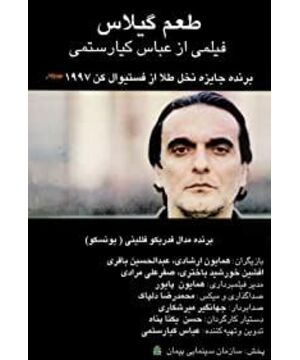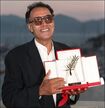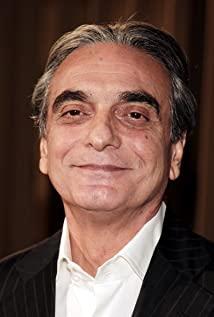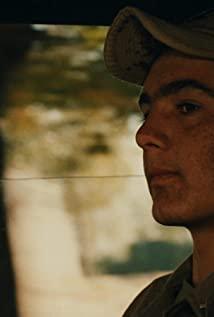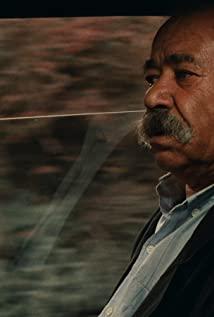I don't know whether it's good or bad, so give it five stars! Because I don't see the problem. Just my notes and thoughts.
In a film that explores death, the first person is a recruit, and the burial of the person who committed suicide violated the customs and habits he had always accepted and ran away.
The second was reluctance to go AWOL, so he figured he probably wouldn't take the job and left.
The third one is a seminary student, from which the theological debate on suicide is launched, and nothing more than that, life is given by God and we have no right to take it away by ourselves, but in fact the difference between "God's deprivation" and suicide is very subtle, such as Su Crates, he could escape, but he didn't, did he commit suicide? For example, to participate in war, to act voluntarily, is this predestined for one's own death? For example, suffering from depression and being pushed to the brink, it is natural to have suicidal thoughts in such a situation. Isn’t this thought put into the heart by God? Another point is that you are not allowed to kill others. What is the difference between killing yourself and killing others? I think the difference is that the former is undoubtedly consenting and even desirous. Whether people have the right to commit suicide is still an issue that needs to be explored. With regard to communication, seminary students blindly put out theories they have learned without understanding the situation at all. This is a gross denial of the suffering of those who intend to commit suicide, and it is ineffective communication.
The third is a worker at the Natural History Museum. It doesn't matter what his identity is. What matters is that he has also attempted suicide, so he is more tolerant of suicide than most people, and will accept this job because he wants to treat his anemic son. He is very talkative, and he does exactly what he says: If you want to help others, you should do it wholeheartedly. That is to put oneself in the position. He talked about going out with suicidal thoughts, found a mulberry tree with a rope, and even threw it twice without pulling the rope up, so he climbed up by himself. The mulberry fruit is so delicious, he ate the first, second, and third, he saw the magnificent sunrise, and the feeling of the sunrise has been instinctive since ancient times, the young child asked him to shake the mulberry tree, and then They grabbed it and ate it, plain and innocent. He felt that it was good to be alive, and there were still many beautiful things to be attached to, so he went back with the mulberry fruit. When he got home, his wife was still sleeping. He asked you do not want to see the sunrise, sunset, do not want to see more? Would you like to close your eyes forever? People will always like to watch and experience. However, it seems that a beautiful experience saved his life, but in fact, could it be the biological instinct that saved him, the more intense the desire to survive when he was dying? Before execution, prisoners always look around, as if to see everything, or stay up all night to play cards. The last look, it was the last look of this survival that made him suddenly discover beauty. I thought that this was not real despair and desperation, not the call of God, and the suicide ordered by God was death without any attachment. To some extent, this kind of suicide was no longer out of free will.
Some lens usage, I find it interesting, but I don't understand it. What will he think when he sees the mud and rocks falling, go there at night and dig a hole to lie in, and the next day will be buried by the soil dumped by the bulldozer, or, am I really planning to go to sleep in the soil? Or remember his pain? He was a man close to death, his shadow standing beside the flowing mud and stone, devoured by machinery. His shadow died first on his behalf, like a rhetorical question: This is death, do you really want to die? Then there is the car winding on the winding road, winding like a conversation, like a test. He was preparing for his death at home, probably eating, bathing, playing the piano, and then looking at the photos of his relatives. The figure moved behind the semi-transparent curtains, which was a bit mysterious, making people guess: Will he not go? As soon as the lights dimmed, he went out, and there was lightning and thunder. It happened to be the full moon hanging high, and the black clouds flowed in strands, like a lady covered in black veil, and it was far more beautiful and unfathomable than the lady. The beauty of nature is mellow and elusive, but it can be appreciated. He got out of the car, it was a medium shot, with a sense of unbiased narrative, he lay in, met the soil and leaves, looked at the moon, silent, silent, silent, silence is the surging of thoughts. When there is thunder once, it is dark once, which makes people think and guess. In the end, I didn't give a clear, open ending. I think this is the genius. If he is determined not to die, this movie is nothing more than a cliché saying that a good life in the world is precious and don't commit suicide. One point. And the ending asks: Can another person's advice really work as miraculously as so many stories have told it? Is the story that suddenly changes after hearing something a myth? Is the beauty of the full moon really nostalgic enough to live, and can beauty save despair?
In the end, the appearance of the film crew pulled people out of the story, dispelled the original tone, and gave some clarity.
View more about Taste of Cherry reviews


